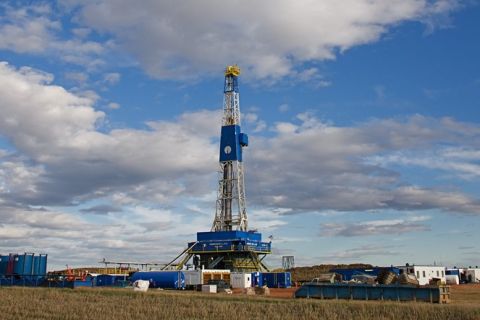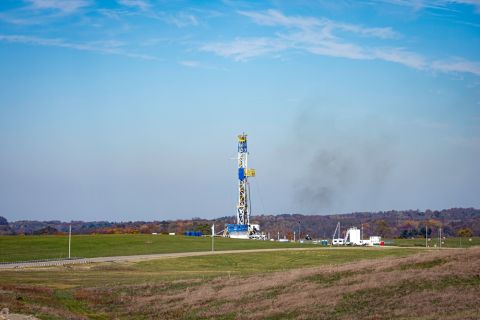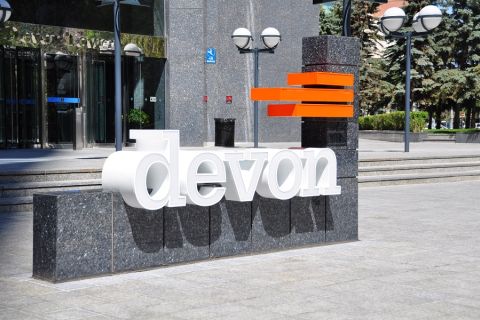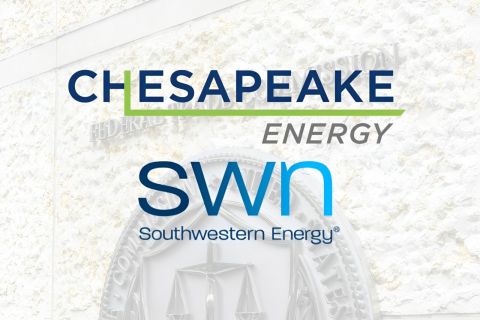A year later. Ever since September 11, the crashing stock market, the accounting scandals and talk of war, it has been easy to question what is of real value in our lives, personal and financial. What is the true value of a company? Is it logical to accept that a Williams or a Dynegy is worth less than $5 per share, when it is backed by billions of dollars of hard assets? Does it make sense for a growing, midcap E&P company with drilling and acquisition success to trade at only two times cash flow? Have we forgotten what net asset value means? We are not sure. A PricewaterhouseCoopers survey recently found that three out of five analysts and investors complain they do not get enough information-or the right kind of information-to judge the true value of a company. That is ironic, given that about a year ago the Securities and Exchange Commission created a new regulation (the so-called Reg FD) demanding full disclosure. It is outrageous that in some cases, we do not yet have full, accurate and truthful disclosure of the numbers that describe public companies. It is of no comfort to hear from noted economist John Maynard Keynes: "Markets can remain irrational longer than you can remain solvent." Houston analyst John Olson recently cited this somewhat ruefully while discussing the dramatic loss in value of the energy merchants he covers. What about the value of a quality drilling prospect? We have written in the past about the scarcity of these. I hear independents complain that there are too few this year, and too many companies chasing the same good ones. Maybe it is because of missed or ignored perceptions of value. I received a thoughtful letter on this from Steven Tedesco of Dorado Gas Resources in Denver, who has been trying to sell some coalbed-methane prospects in Kansas and Illinois. He is clearly frustrated by current thinking that seems to place less value on drilling ideas than in the past. He claims a train wreck is being perpetuated by CEOs who are so sensitive to shareholder and Wall Street concerns that they no longer tolerate E&P risks. "Most corporate managers are focused on shareholder value and market perception, and the impact of drilling even a single dry hole. As someone who sells prospects I have found that there are only a handful of companies ready to take a drillable prospect or project compared with 10 years ago. "It used to be that companies like Amoco would drill five, 10, 15 dry holes before condemning a play or area...now it is almost impossible to get a company to stray more than a mile from existing production." In four cases, mid-level managers of large public companies were ready to take his prospects, but the CEO and boards turned them down-not on technical merits, but because of the potential impact of a $10-million dry hole. He claims too many companies now lack enough staff to fully evaluate prospects-or their managements are so focused on core areas, they cannot look at possibilities elsewhere. Risk aversion is seeping into the E&P staff itself, Tedesco says. "Before July 2001 no one wanted to be in Kansas coalbed methane, until Devon Energy showed up and then the herd followed. After a multitude of mergers, downsizing and shakeouts the existing staffs in these companies tend to be noncreative and lack a sense of urgency-they are more interested in a paycheck than in developing reserves by taking a risk." A CEO has no right to complain about the dearth of exploration targets if he is not willing to risk a few dry holes in order to explore a possible play. But Wall Street has to let him do it. Are you in acquisitions and divestitures? Do you wonder where this market is going? If so, be sure to attend our Executive Forum: A&D Strategies and Opportunities, to be held in Dallas on Thursday, September 26, at the Sheraton Park Central Hotel. It is co-sponsored by Wellspring Partners, a Dallas A&D advisory firm. Executives actively buying and selling, A&D and due diligence advisors and the capital providers who bank A&D transactions will share ideas on how to maximize a portfolio for top performance and to mitigate risk. We especially look forward to the panel of buyers who will tell you what they plan to do next and what their deal criteria are. And, legendary wildcatter Clayton W. Williams of Midland, Texas, will be recognized with our first Industry Vision Award. We hope to see you there as we kick off the fall buying season. To register, contact Hart Publications at 800-872-3835 or lcarter@chemweek.com.
Recommended Reading
Williston Warriors: Enerplus’ Long Bakken Run Ends in $4B Chord Deal
2024-02-22 - Chord Energy and Enerplus are combining to create an $11 billion Williston Basin operator. The deal ends a long run in the Bakken for Enerplus, which bet on the emerging horizontal shale play in Montana nearly two decades ago.
Chord Buying Enerplus to Create a Bakken Behemoth
2024-02-22 - Chord Energy said Feb. 21 it will acquire Enerplus Corp. for nearly $4 billion in a stock-and-cash deal to potentially create the largest producer in the Williston Basin.
Ohio Oil, Appalachia Gas Plays Ripe for Consolidation
2024-04-09 - With buyers “starved” for top-tier natural gas assets, Appalachia could become a dealmaking hotspot in the coming years. Operators, analysts and investors are also closely watching what comes out of the ground in the Ohio Utica oil fairway.
Report: Devon Energy Targeting Bakken E&P Enerplus for Acquisition
2024-02-08 - The acquisition of Enerplus by Devon would more than double the company’s third-quarter 2023 Williston Basin production.
Chesapeake-Southwestern Deal Delayed Amid Feds Scrutiny of E&P M&A
2024-04-05 - The Federal Trade Commission asked Chesapeake and Southwestern for more information about their $7.4 billion merger — triggering an automatic 30-day waiting period as the agency intensifies scrutiny of E&P deals.





